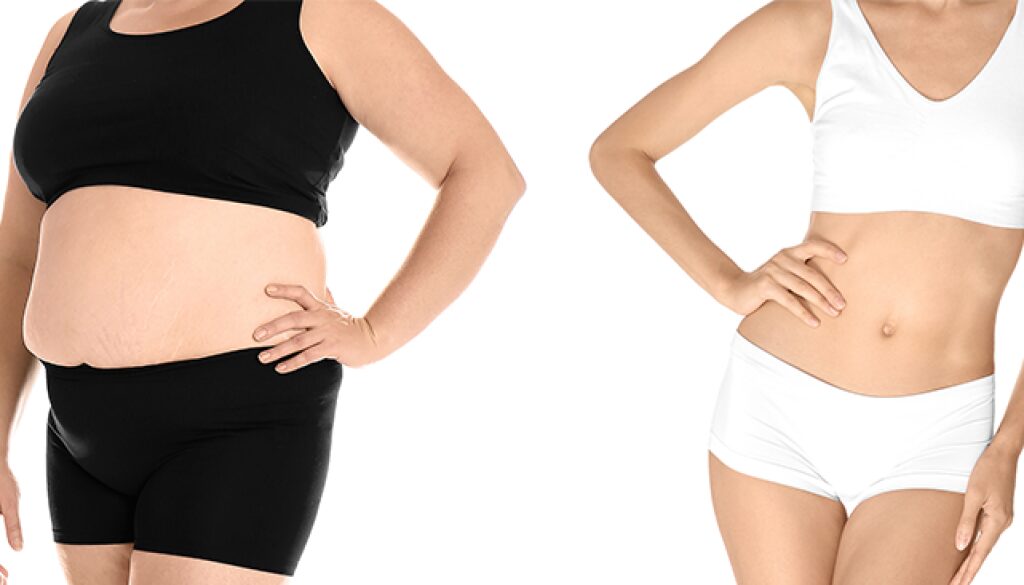Your Complete Guide to Bariatric Surgery Recovery
Bariatric surgery transforms your life, lowering your risk for diseases and enabling you to participate in the activities you once enjoyed. There’s no question that this procedure saves lives, but there are several things you must remember in order to have a healthy and complete bariatric surgery recovery from the procedure.
One of the most important things? A bariatric surgery diet. We’ll take a quick look at comparing meals before and after bariatric surgery, and give useful information to be sure you’re on the right. But first, let’s take a look at what bariatric surgery is.
What Is Bariatric Surgery?
Bariatric surgery, also referred to as weight loss surgery, is a procedure that transforms the size or shape of the stomach or bypasses your stomach so that it holds less food. As a result, you’re able to successfully lose weight and prevent diseases such as Type 2 diabetes, heart disease, high cholesterol and others.
You must meet certain bariatric surgery qualifications in order to be a candidate.
When Can I Return to Work After Bariatric Surgery?
In general, you’re looking at returning to work in one or two weeks. Just remember that your energy level might be pretty low. That means you may need to take some half days now and then.
Of course, this depends upon what type of job you have. If you sit at a desk all day, you’ll likely be fine. However, if your job involves a lot of physical duties and lifting, you should talk to your supervisor. Staying safe is the most important priority.
When Should I Start Exercising After Bariatric Surgery?
We’re glad you mentioned that! You can start immediately with short walks. In fact, we’ll probably have you walking while you’re still in the hospital. In about 4 weeks you will be able to start cardio (e.g. cycling), and in about 6 weeks after surgery you should be able to add strength training to your workout routine. Always consult your surgeon, if in doubt.
Just remember to take it slow, and don’t try to overdo it. Low impact exercises are your friend.
What About Vitamins and Bariatric Surgery Recovery?
Vitamins are an important part of your bariatric surgery recovery. In fact, as part of a bariatric surgery diet, you’ll have to take multivitamins for the rest of your life.
Why? Because bariatric surgery changes the amount of vitamins that are absorbed by your stomach. We want to be sure that you’re not missing out on any important nutrients.
We’ll evaluate what vitamins you need in your diet, but in general, you’ll be taking:
- Multivitamin
- Calcium with vitamin D
- Additional iron
- Vitamin B12
- Vitamin A
- Vitamin E
- Vitamin K
Important Facts About a Bariatric Surgery Diet
You have changed. Your body has changed.
And your stomach has changed.
Because your stomach doesn’t hold as much food as it used to, you’ll have to take special precautions. If not, your stomach will be stretched by the food you eat, and you may gain some of the weight back as a result.
You definitely don’t want that.
So follow our useful recommendations to help you.
The 4-1-1 of Bariatric Surgery: Before and After
Immediately after your surgery, you’ll be limited to a liquid diet drinking things such as broth, milk, or even sugar-free gelatin. Then, you’ll “graduate” to pureed foods.
Don’t worry. Gradually you’ll be able to work solid foods back into your diet. But there will be some differences not just in what you eat, but in the way you eat.
For example, before your surgery, you probably had something to drink with every meal. You also may have eaten faster.
After bariatric surgery, you can sip liquids between meals, but not WITH meals. You now have to avoid drinking anything for 30 minutes before a meal and 30 minutes after a meal.
Following are some other examples of changes that need to be made as part of a bariatric surgery diet:
- Don’t get dehydrated! Drink 64 ounces of fluid every day.
- Eat and drink slowly.
- Limit caffeine.
- Don’t drink alcohol.
- Be sure to take your vitamins.
- Eat foods low in fat and sugar.
- Lean, protein-rich foods are always a good choice.
- Chew food thoroughly.
What Is Dumping Syndrome?
Dumping syndrome is as unpleasant as it sounds. It happens when too much food goes into your small intestine too quickly. It can also occur if you eat high-fat and high-sugar foods.
Dumping syndrome symptoms include:
- Vomiting
- Dizziness
- Nausea
- Sweating
- Diarrhea
It’s definitely something you want to avoid!
Interested in Weight Loss Surgery?
Ready to get started? The best way to learn what you need to know about bariatric surgery is to attend one of our upcoming Weight Loss Surgery Seminars to learn all you need to know.
At these meetings we’ll discuss:
- Criteria to become a surgical candidate
- Information about the different types of weight loss surgery
- Your weight loss goals
- How we can support your weight loss journey
At the seminar, Dr. Nuwayhid, a board-certified surgeon and fellow of the American Society of Metabolic and Bariatric Surgery, will discuss all the items you need to know in order to make an educated, informed decision about bariatric surgery.
To begin your journey, contact us or sign up for one of the seminars. We’re thrilled to be taking this journey with you.
At the time of this writing, we have online seminars available 24/7 and in-person weight loss surgery seminars multiple times per month. Click here to view the schedule and sign up for a Weight Loss Surgery Seminar.




